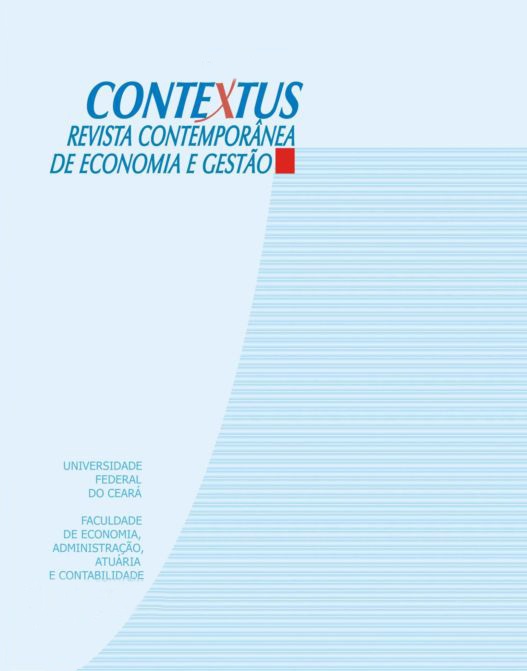COOPERATIVAS DE CRÉDITO: A EVOLUÇÃO DOS PRINCIPAIS SISTEMAS BRASILEIROS COM UM ENFOQUE EM INDICADORES ECONÔMICO-FINANCEIROS1
DOI:
https://doi.org/10.19094/contextus.v9i1.32130Palabras clave:
Cooperativas de Crédito, SICOOB, SICREDI, UNICRED, Indicadores de Desempenho.Resumen
As cooperativas de crédito destacam-se no contexto social e econômico do Brasil como via de acesso ao microcrédito. O objetivo geral deste artigo é descrever a evolução dos três principais sistemas de cooperativas de crédito brasileiros (SICOOB, SICREDI, UNICRED), por meio de algumas variáveis econômico-financeiras, com dados consolidados no Sistema Financeiro Nacional (SFN), entre 2000 e 2004. Assim, é uma pesquisa quantitativa, em que essas variáveis foram estudadas por ordem de classificação, segundo a performance desses sistemas no corte, evidenciando qual deles apresentou maior evolução. Confirmou-se que o SICOOB é o maior dos sistemas do ramo crédito do País. Porém, com base nos indicadores analisados no período, foi o SICREDI que teve a melhor performance, com crescimento acima dos outros dois sistemas, nesse período. Ademais, visualizou-se que essas cooperativas alavancam as operações dos associados e podem preencher a lacuna do microcrédito para as famílias, gerando empregos e riqueza.Descargas
Publicado
Cómo citar
Número
Sección
Licencia
The authors, while doing the submission, accept the notice below:
We authors hold the copyright related to our paper and transfer Contextus journal the right for the first publication with a Creative Commons’ international license of the modality Attribution – Non-commercial 4.0, which in turn allows the paper to be shared providing that both the authorship and the journal’s right for initial release are acknowledged.
Furthermore, we are aware of our permission to take part in additional contracts independently for non-exclusive distribution of the version of our work published in this journal (e.g. publishing it in an institutional repository or as a book chapter), while acknowledging both the authorship and the journal’s initial publication.
We also certify that the paper is original and up to this date has not been released in any other journal, Brazilian or of another nationality, either in Portuguese or another language, as well as it has not been sent for simultaneous publication in other journals.
Last, we not only know that plagiarism is not tolerated by Contextus but also certify the paper presents the sources of passages from cited works, including those authored by ourselves.


